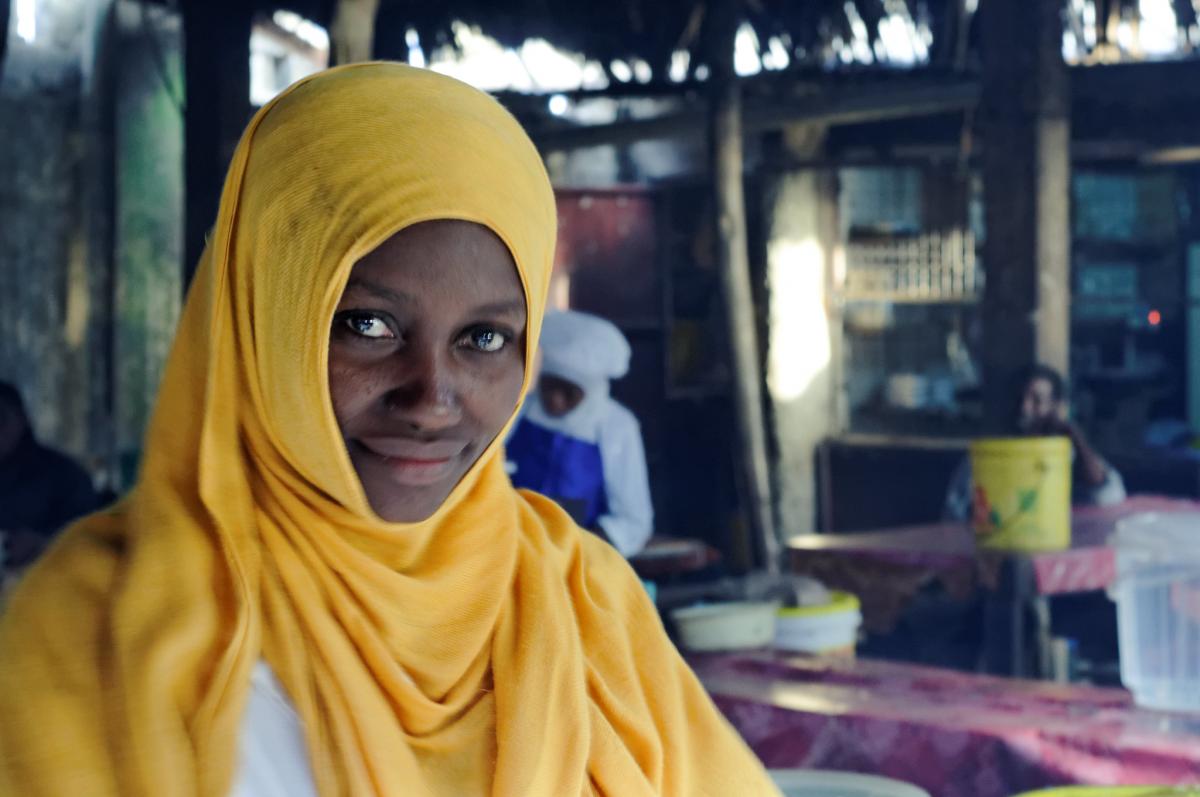
Ten HIV Care and Treatment Clinics (CTCs) on the Unguja and Pemba Islands of Zanzibar have strengthened family planning service quality and two are offering family planning services for the first time, following a directive issued by Zanzibar’s Ministry of Health (ZMOH) last year. The directive required the islands’ CTCs to integrate family planning with HIV services and capture service data in the District Health Information System (DHIS2). CTC providers received a two-week training at the Mnazi Mmoja Referral Hospital in Zanzibar in September 2020 to gain the knowledge and skills to provide family planning counseling and services. Orientation on the accompanying data tracking tools is underway.
Zanzibar has set a modern contraceptive prevalence rate (mCPR) target of 20% by 2022 [1]. According to the most recent Tanzania Health and Demographic Survey, the mCPR among currently married women in Zanzibar ages 15 to 49 is 14%. Married women in Unguja Island (16%) are more likely to use modern methods than their counterparts in Pemba Island (9%) [2]. HIV prevalence is generally considered to be low (0.5%), although it varies widely across Zanzibar’s five regions, from 0.1% in Unguja North to 1.4% in Mjini Magharibi [3].
Evidence shows that integrating family planning with HIV services ‘under one roof’ increases access to and uptake of contraception among people living with HIV who wish to prevent pregnancy; lowers unmet need for family planning among women at risk of and living with HIV; and reduces stigma and enhances privacy for those accessing these services [4]. Although providing family planning services in an integrated way has been an emphasis of the Zanzibar Health Sector Strategic Plan III since 2013 [5], implementation has been slow.
The Zanzibar Nurses Association (ZANA), one of Advance Family Planning’s (AFP’s) local partners, conducted a rapid assessment of family planning service integration in August 2020. Of the 13 facilities assessed, three of Zanzibar’s 13 CTCs had not yet integrated family planning services, while the remaining ten clinics provided services in an ad hoc manner, without systematically capturing and reporting data on the service [6].
In July 2020, ZANA’s advocacy meetings with the ZMOH’s Integrated Reproductive and Child Health (IRCH) and HIV programs within the MoH resulted in the issuance of the directive and a commitment to strengthen coordination between the two programs. Of the CTCs identified for improvement, only one reported that it could not add family planning services—due to lack of space.
To address the data gaps, IRCH reviewed the DHIS2 system and its tools in September 2020 for all service outlets, including the CTCs. It has begun orienting service providers on the new tools and how to feed data into the DHIS2. Officials plan to fully roll out the revised tools in 2021.
ZANA and other family planning partners will be monitoring progress in implementing the directive. The IRCH program has organized a meeting for service delivery partners and other stakeholders, including ZANA, next month.
References
- Revolutionary Government of Zanzibar, Ministry of Health Zanzibar. 2017. The Zanzibar Family Planning Costed Implementation Plan 2018 – 2022. Retrieved from https://mohz.go.tz/wp-content/uploads/2021/01/CIP.pdf.
- Ministry of Health, Community Development, Gender, Elderly and Children [Tanzania Mainland], Ministry of Health [Zanzibar], National Bureau of Statistics, Office of the Chief Government Statistician, and ICF. 2016. Tanzania Demographic and Health Survey and Malaria Indicator Survey (TDHS-MIS) 2015-16. Dar es Salaam, Tanzania, and Rockville, Maryland, USA: MoHCDGEC, MoH, NBS, OCGS, and ICF. Retrieved from https://dhsprogram.com/pubs/pdf/FR321/FR321.pdf.
- The United Republic of Tanzania. 2013. Tanzania Third National Multi-Sectoral Strategic Framework for HIV and AIDS (2013/14 – 2017/18). Retrieved from https://mohz.go.tz/wp-content/uploads/2021/01/CIP.pdf.
- FHI360, Preventive Technologies Agreement, and USAID. 2013. Integrating Family Planning into HIV Programs: Evidence-Based Practices. Retrieved from https://www.fhi360.org/sites/default/files/media/documents/fp-hiv-evidence%20based%20practices%202013.pdf.
- Revolutionary Government of Zanzibar, Ministry of Health Zanzibar. 2013. The Zanzibar Health Sector Strategic Plan III (2013/14 - 2018/19). Retrieved from https://health.eac.int/publications/zanzibar-health-sector-strategic-plan-iii-2014-18#gsc.tab=0.
- Zanzibar Nurses Association. 2020. Rapid Assessment of Family Planning Services in HIV Care and Treatment Clinics.

